- Home
- Barry Eisler
Requiem for an Assassin Page 16
Requiem for an Assassin Read online
Page 16
Slowly, gingerly, she settled back onto the bed, gasping as though she had just surfaced from the deep. Rain dropped his head next to hers and took some weight onto his elbows. She heard him mumble something, she didn’t know what, and she smiled through near delirium.
He remained like that for a few moments, the only movement the gradually slowing rise and fall of his breathing. Then he rolled off her onto his back, but close this time, so their bodies were touching, not the way it had been on the couch. They lay there, and she imagined a pair of shipwreck survivors who had just washed up exhausted onto a beach.
He came to his side to face her and put a hand on her belly. A line of sweat was trickling down his forehead, and she wiped it away with a finger.
“You okay?” he asked.
She smiled. “Okay?”
“I didn’t mean to be so…rough.”
She laughed. “I think you did.”
He dropped his eyes and a little color crept into his cheeks. “Well…”
He looked so appealing to her right then. The tousled hair…the sweat…the sudden shyness after a bout of demonic lovemaking. “Sometimes you’re a little rough, John,” she said, tracing the contours of his face with her fingertips. “It’s part of you. It’s part of what I…like about you.”
Good God, in the raw, dazed honesty of the moment, she had almost said, “What I love about you.” She had been close before to giving voice to those feelings, but had always pulled back out of fear of his reaction.
“Come sit with me in the hot tub,” she said.
He looked at her, sidelong. “I don’t know if I can move.”
She smiled and punched him on the shoulder. “If I can, you can.”
They switched off the patio lights and entered the water slowly, wincing from the heat at first, then enduring, and finally surrendering to it. They sat immersed in the near dark, steam rising into the cool air around them.
“It’s good here, isn’t it?” Delilah said. In the dim light, she could see his eyes, but not make out his expression.
He didn’t answer for a while. He was looking past her, and just as she thought she would take a chance and ask him what he was thinking, he said, “How will I know?”
“Know what?”
“How to make the right choice. Because I never have before.”
She reached through the water and took his hand. “I think you made a good one a few minutes ago. That’s a start.”
19
DOX HAD BECOME adept at reading sounds and other signals on the boat. Whose footsteps belonged to whom; whose muffled voices. The vibration of the engine when they were at sea; its silence when they were in port. The slight dip and rise of the craft when someone stepped on or off it. He knew they were in a port right now, somewhere. Hilger and the blond dude were off the boat; only Uncle Fester and the young-looking guy were still aboard.
He heard footsteps on the stairs and knew from the sound it was Fester. He glanced up a moment later and there he was, looking in through the door window. Dox smiled at him to let him know he wasn’t afraid, and turned up both his hands to offer a double middle finger salute. He heard the lock turning, and Fester poked his head in.
“How you doing, Uncle Fester?” Dox asked, smiling as though the psycho were his best friend.
“I’m good, pendejo. I wanted you to know, I’m going to bring you a surprise.”
“Oh, Fester, you don’t have to put yourself out for me. I know you’ve got important things to do, you know, lawns to mow, fruit to pick, things like that.”
Fester reddened and Dox felt a rush of satisfaction. He had nothing against Mexicans or anyone else for that matter. It was just a good way to push Fester’s buttons.
Fester recovered and broke out in a hundred-watt psycho smile. “Ordinarily, I’d fuck you up for that. But…I think now I’ll wait until next time I see you. I’ll bring the surprise then. I just want you to have it to think about.”
Dox shook his head. “Fester, I’m disappointed in you. It’s sad that a first-class sadist such as yourself should have to resort to such crude and obvious strategies as trying to instill dread in the prisoner. You’ve been reading too many books on interrogation, I think that’s the problem.”
Fester reddened again, and Dox thought he might be onto something. Before he could follow up, Fester said, “Oh, one more thing. You know, we’re setting up your friend. He’s doing some jobs for us, and then we’re going to kill him. Should be just another day, maybe two. When he’s dead, we won’t need you anymore. I’m telling you because I want you to wonder every time I knock on your door. ‘Is he here to give me my surprise? Or is he going to gut me and let me bleed over the side to attract sharks before throwing me in?”’
“That’s more like it, Fester! See how you put some of your own special personality into it? That time, it didn’t feel like it came from a book. Keep practicing, and soon you’ll be able to terrorize any helpless, manacled prisoner you like. You’ll be an inspiration to sadists everywhere.”
Fester smiled. “Okay, pendejo. See you soon.” He closed the door and Dox listened to his footsteps as he went up the stairs.
He let out a long breath. Just because Fester had read it in a book, and it was crude and obvious, didn’t make it ineffective. Knowing Fester’s tactics, and provoking the man on top of it, was helping. But when that door closed, and the sound of footsteps receded, it was hard not to be scared.
Especially after that “See you soon.” Something had kept Fester from losing his temper just now, something he was looking forward to. Dox hated to think of what it might be.
20
DELILAH LEFT the next afternoon. She had things going on in Paris, I knew, but still it wasn’t easy to get her to go. She was worried about me, and about Dox. She wanted to help.
I appreciated the sentiment, but I was determined to keep her out of this. I’d accepted, even solicited, her help before, but that had always been operational. These killings for Hilger…no matter the reasons, no matter the coercion, there was a line I didn’t want her to cross. She had no idea what would be waiting for her on the other side of it, or how difficult, maybe impossible, it is to find your way back.
I didn’t want to face it, but the odds of my coming out of this thing intact weren’t exactly encouraging. I’d established some room for maneuver, true, but overall Hilger was still calling the shots. He had no intention of letting me live when I was done with his work, and there were a hundred ways he could use Dox to get to me when he was ready. Even if I managed to survive, most likely Dox wouldn’t, and losing him would fuck me up in ways I sensed but didn’t want to fully consider. What would Delilah do with me after that? And no matter how things turned out, as long as Hilger was out there, I’d be not just a burden to Delilah, but a danger, too. It wasn’t fair to her.
Not two days earlier, I’d decided I should just break things off with her, I’d accepted that it had to be done. Then, stupidly, I’d let her come see me, and it had been so good that I’d temporarily forgotten my resolve. But already, as I drove east into West Hollywood on Sunset Boulevard, the sun flaring behind me as it sank in the sky, my evening with Delilah was beginning to feel meaningless, even foolish. She was an attractive woman, yes, more attractive than any I’d ever known. And she had a lot of good qualities, along with a few maddening ones. But what did any of that have to do with me, really, and the life I had to lead? Drunk on liquor at the time, and intoxicated by her nearness, I’d nearly been beguiled by her talk of choices. But I saw clearly now all that was foolish. Some things go beyond choice. Some deeds have such power and resonance that they become your own nature, and eclipse everything else you do. Delilah didn’t understand that. Because part of me cared about her, and always would, I was glad she could indulge such illusions, and took some quiet pride in maintaining them for her. What I couldn’t, and wouldn’t do, was share them.
I stopped at an Internet café with no great hope and checked the Kanezaki bullet
in board. Still nothing. I stared at the empty text box for a few moments, unsurprised. I would just have to go on to the next target. It felt natural. It felt like fate.
At another café, I checked on Hilger. There was a message waiting, as I had expected. I smiled to myself, ruefully. You see? I thought, as though I was talking to Delilah. You see?
A name, Michael Accinelli. A timetable: five days again. Shit. I wondered what the short fuses meant. For now, no way to know. I supposed I should count myself lucky that Hilger hadn’t made the deadline even sooner, after learning how quickly I’d managed to do Jannick.
There was a business address in Mineola, New York; a home address in Sands Point, New York. I didn’t recognize the name of either town. Phone numbers. The make and model of the cars he drove—a 2007 Mercedes S600 and a 2007 Range Rover HSE—along with license plate numbers. Several photos of a fit-looking guy in his late fifties, with a full head of steel-gray hair and dark, piercing eyes. In one of the shots, Accinelli was wearing an expensive-looking charcoal chalk-striped suit; a white, spread collared shirt; a navy tie; and a white linen handkerchief. He was sitting, both hands folded on a knee, leaning forward slightly, smiling confidently. Very chairman of the board, and in fact the photo looked like something lifted from a corporate brochure or website. In the other photos, he was behind a lectern in similar business attire, probably at an investors’ conference or some industry event.
I Googled him. The first hit was for a company called Global Pyrochemical Industries, and sure enough, there was the shot of Accinelli in the charcoal suit, right on the home page. He was indeed the chairman of the board, and the CEO, too. I clicked on his bio: born and raised in Oyster Bay, Long Island, 1950; graduated with honors from West Point, 1972; served in Grenada, Panama, and the first Gulf War, winning a Silver Star in the second of the three conflicts; retired from the Army a bird colonel after twenty years of service. Founded GPI in 1993, took it public in 2001.
I wondered about Iraq. That was Hilger’s war, too. Could be a coincidence; could be a connection. A long shot, but I tried searching for Hilger/Accinelli. Nothing. Likewise Jannick/Accinelli and Jannick/Hilger. Well, maybe Kanezaki could do better.
GPI described itself as a specialty chemical supplier to companies all over the world. They had four product lines: intermediates for pharmaceuticals; automotive airbags; industrial cellulosic polymers; and pyrotechnic and military. I didn’t know much about any of it. The only applications I recognized were car airbags, and the various military uses: rocket propellant, explosives, white phosphorus grenades.
I checked on the business and home addresses. Mineola was on Long Island, about twenty-five miles east of Manhattan. Sands Point was ten miles north of Mineola, on the north shore of Long Island at the tip of the Port Washington peninsula. Mineola sounded solidly middle class; Sands Point, on the other hand, apparently was the model for the town of East Egg in The Great Gatsby. Fitzgerald’s mansion was still there, I discovered, on Hoff-stots Lane, and was currently for sale for $28 million. It seemed Accinelli had done well with GPI. He certainly wasn’t living in Sands Point on his military pension.
Manhattan made me think of Midori, living in Greenwich Village with our son, Koichiro. He would be…about two and a half now. I’d seen him only once, a year earlier, and after Midori’s betrayal I knew there was no way I could have either of them in my life. A permanent gulf was best for all of us, even, much as it saddened me to admit it, for Koichiro. I thought of him, of course, late at night, when sleep wouldn’t come, and the way he looked and felt the one time I had held him in my arms. Sometimes I would open up a small vein of hope about the far-off future, and imagine going to him, explaining who I was, building a relationship, however uncertain, being part of his life. Those tenuous hopes and fragile aspirations seemed ridiculous now, weak and naive in equal measure, and I could have laughed at myself for ever having indulged them.
Sands Point had its own website, which boasted that the community was entirely residential: just eight hundred fifty families; a few houses of worship; a primary and a secondary school; and unsurprisingly, a country club with an eighteen-hole golf course. The country club was called the Village Club, and I had a strong suspicion that Accinelli, an ethnic kid who had grown up on the other side of the tracks in nearby Oyster Bay and then gone on to make something of himself, would be a member. I checked the club’s website. There was no directory of members, but there was a collection of photos from a recent New Year’s Eve party, Accinelli prominent in several of them. An attractive woman of about his age, whom I assumed was his wife, was on his arm in all the photos. The people around them were well dressed, looked well fed, and must certainly have been blessed by fortune. I made them as low-tax Republicans and limousine liberals. Probably there was more to them than that, but the shorthand would get me started as I determined how to invisibly infiltrate their society.
I thought about posting the information to Kanezaki. The sooner he had the name of the second target, the sooner he could apply the new data to the nexus we were trying to build with Hilger, and, by extension, Dox. There wasn’t an obvious connection to the CIA, as there had been with Jannick, but…I hated the thought of tipping off a government agency to an impending hit, even if the tip-off was to someone with a good track record, like Kanezaki. It was just too dangerous. I decided to play it by ear again. Worst case, I’d tell him immediately afterward, and find a way to placate him, as I had before.
Because I had accessed the bulletin board and then researched Accinelli from computers in L.A., I had to assume Hilger might now be able to place me here. I imagined how he would try to anticipate me, if that’s what he wanted to do: He’s coming from L.A. The most obvious airport would be LAX, but of course there’s Orange County, too, and Burbank. On the other end, JFK, La Guardia, and Newark are all pretty much equally possible. I haven’t given him much time, so assume he goes straight to the airport after accessing the bulletin board…
No. With a minimum of three airports on either side, the whole thing was too unpredictable. He couldn’t narrow it down enough to make it operational, not unless he had a small army of people to rotate through all three possible destination airports for surveillance of multiple incoming arrivals. Even so, as always, I would assume the presence of a welcoming party, and use extra caution leaving whatever airport I flew into.
I purged the nav system for a last time, input LAX as my next destination, and returned the car at the airport. I caught a bus to the terminal, where I discovered that United offered three red-eyes: two to JFK and another to Newark. First class was sold out on the JFK-bound flights, but there was one first-class seat left on the 10:30 to Newark. I bought a ticket, spent two hours reading the latest Economist in the departure lounge, and slept for a few hours before arriving in Newark at six-thirty the following morning.
I waited in the arrivals area with my carry-on after getting off the plane, until the passengers from my flight had cleared out. Among the people who remained, all presumably waiting for other flights, no one set off my radar, but there was no way yet to be sure. I started walking toward the baggage area, and no one followed me out. So far, so good.
I took the tram to another terminal and noted again I wasn’t followed. If someone was waiting for me, he was outside the terminal, not inside. That, or they had enough manpower for a static approach. Regardless, there were a few more things I could do to make sure.
I went to a pay phone and used the Yellow Pages to find a place called Image Rent-A-Car that specialized in exotics. I was looking to rent a Mercedes for a few days, I told them, the S Class. Did they have one I could pick up today? Unfortunately, the Mercedes rentals were all out, the helpful gentleman on the other end informed me. But they could have a navy 2006 BMW 750Li delivered to me in most places in the tristate area in less than an hour—four days, four hundred free miles, seventeen hundred fifty dollars. I told him the BMW would do, and that I’d be happy to come to him, if he could give me an a
ddress.
I went outside, and the East Coast winter cold hit me immediately. I felt my nostrils prickle, and a sudden wind cut right through the cashmere blazer I was wearing. I wanted to hunch my shoulders and jam my hands in my pockets, but didn’t, in case I’d missed something and needed to react quickly. I scanned the area as I moved. There were people around, getting in and out of cars, fumbling with luggage, but no danger signals. Damn, it was cold. The airport workers were all in gloves and hats and bulky parkas, and the exhaust coming from cars and taxis was billowing out as white steam. I’d have to pick up some warmer clothing as soon as I could.
I got in a cab and, in a thick Japanese accent, told the driver I was concerned my suspicious wife was following me. Could he take a strange route so I could make sure she wasn’t?
“Anything you want, buddy,” he said. “I’ll just put it on the meter.”
I smiled, slipping on the leather gloves I had bought in Mountain View, and thought, I love New York.
ONE HOUR, TWO CABS, and a foot route later, confident I was clean, I picked up the BMW. Among the mansions of Sands Point, it would be familiar, comforting, and invisible. I threw my bag in the trunk, turned the seat warmer on high, plugged Accinelli’s work coordinates into the nav system, and followed the directions out to Long Island.

 All the Devils
All the Devils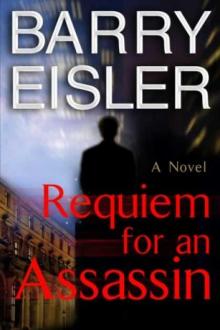 Requiem for an Assassin
Requiem for an Assassin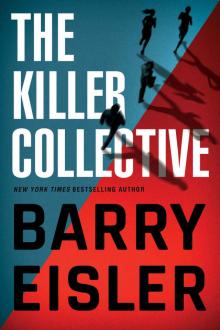 The Killer Collective
The Killer Collective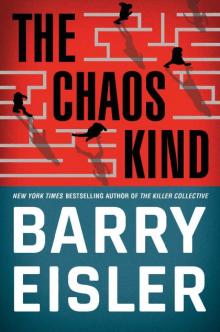 The Chaos Kind
The Chaos Kind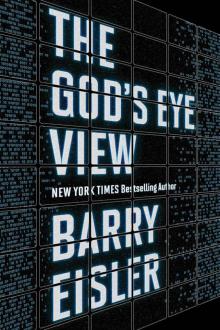 The God's Eye View
The God's Eye View Paris is a Bitch
Paris is a Bitch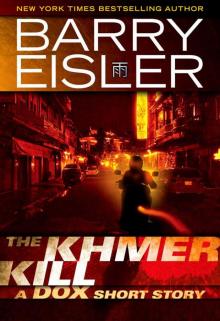 The Khmer Kill: A Dox Short Story (Kindle Single)
The Khmer Kill: A Dox Short Story (Kindle Single)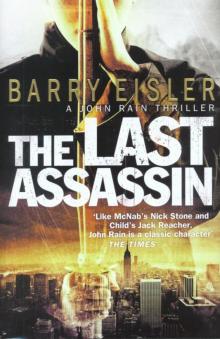 The Last Assassin
The Last Assassin The Detachment
The Detachment The Night Trade (A Livia Lone Novel Book 2)
The Night Trade (A Livia Lone Novel Book 2)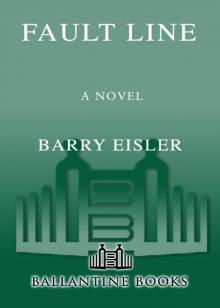 Fault Line
Fault Line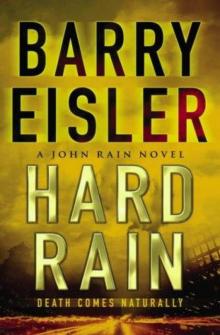 Hard Rain
Hard Rain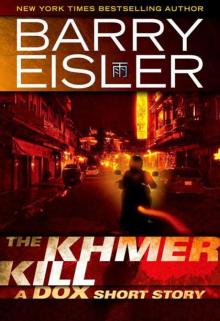 The Khmer Kill_A Dox Short Story
The Khmer Kill_A Dox Short Story London Twist: A Delilah Novella
London Twist: A Delilah Novella The Lost Coast
The Lost Coast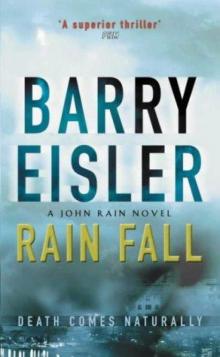 Rain Fall
Rain Fall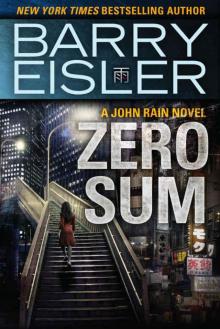 Zero Sum
Zero Sum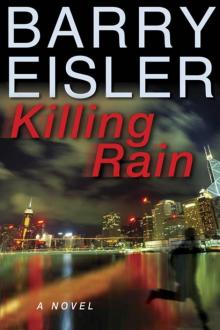 Killing Rain
Killing Rain John Rain 08: Graveyard of Memories
John Rain 08: Graveyard of Memories A Clean Kill in Tokyo (previously published as Rain Fall)
A Clean Kill in Tokyo (previously published as Rain Fall) Inside Out: A novel
Inside Out: A novel John Rain 07 - The Detachment
John Rain 07 - The Detachment Graveyard of Memories
Graveyard of Memories The Lost Coast -- A Larison Short Story
The Lost Coast -- A Larison Short Story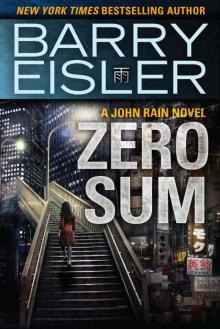 Zero Sum (A John Rain Novel)
Zero Sum (A John Rain Novel)